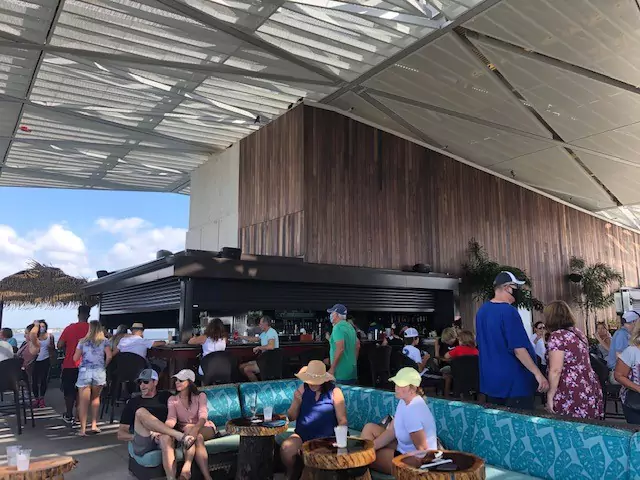
Related Posts
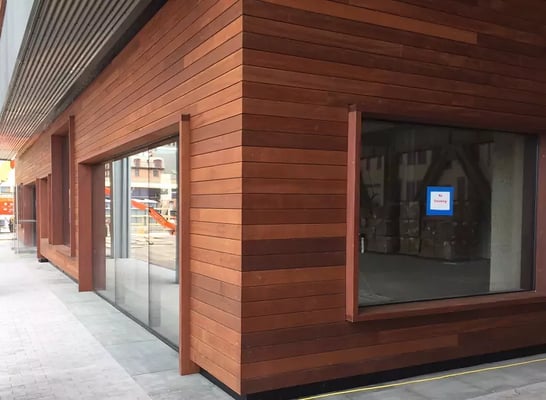


Thermally modified wood was selected for the St. Petersburg Pier project for its natural good looks and exceptional performance rating. Check out the thermally modified wood rainscreen siding design and installation on this historic landmark Florida project.
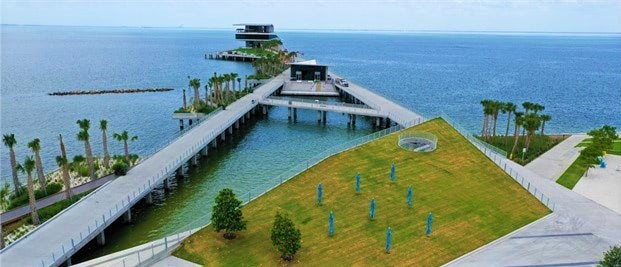
The new pier in St. Petersburg, Florida, locally known as the St. Pete Pier, projecting out into Tampa Bay, was redesigned for easy pedestrian access into the gulf. Take a walk. Along the way, you can stop and browse, or eat, or drink, or rest, or otherwise enjoy the trip and the many retail establishments along the way.
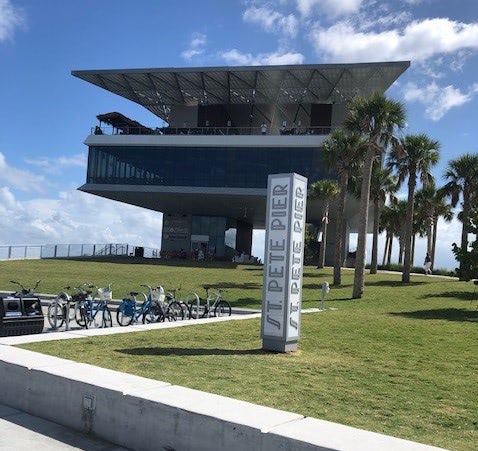
The City of St. Petersburg Florida brought in a whole team of experts to bring this destination project to life. Rogers Partners Architects + Urban Designers served as the architects for this project. The team at Thornton Tomasetti were the project engineers. The general construction was handled by the capable team at Skanska.
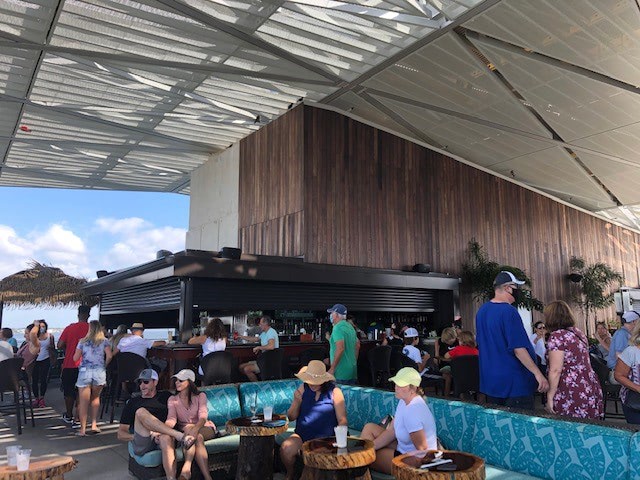
Thermally modified wood rainscreen siding adds a natural element to the concrete pier
The design team chose to make the entire project pedestrian only, with many destinations along the pier, not just at the pierhead end. The project includes three buildings, a dining pavilion, education center, and the multi-level “St. Pete Pierhead”, which includes restaurants, shopping, and a rooftop bar.
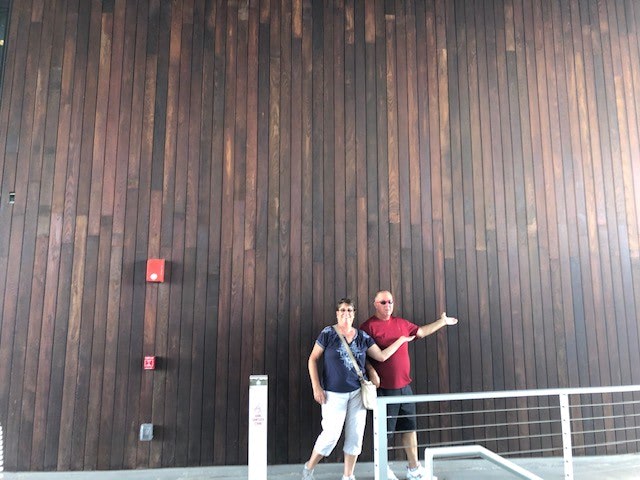
Thermally modified wood siding with an oil finish
To help visitors enjoy their experience more fully, the 18,000 SF Pierhead building is oriented away from the due-west glaring sun, and all the structures are protected by overhead canopies for shade and comfort. Thermally modified wood siding was specified for its beauty, sustainability, and its ability to weather gracefully to a gray patina over time in the Florida sunshine.
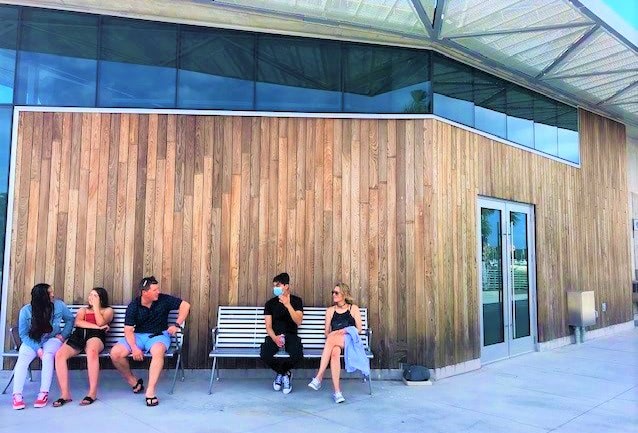
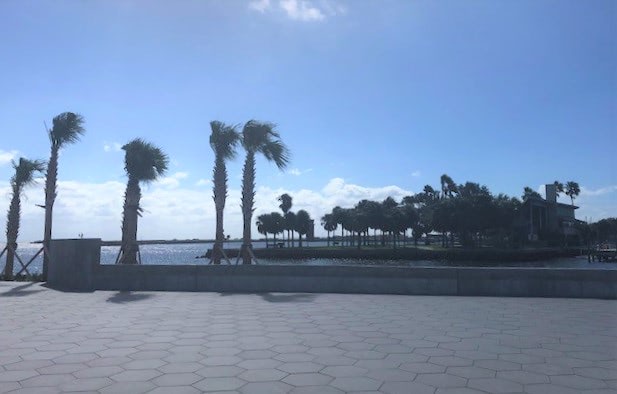
The St Pete Pier receives plenty of high winds. Climate-Shield rainscreen system can handle it.
Because of its reliability in high velocity winds, and to provide secure and reliable fastening, the Climate-Shield® Rainscreen System was specified. The Climate-Shield system is engineered for exceptional wind resistance and high performance in tough weather areas, including hurricane zones in Florida. The Climate-Shield rainscreen system was employed to fasten the thermally modified wood cladding vertically.
RELATED: Climate-Shield Rainscreen System
Looking for wood rainscreen siding ideas for a commercial project?
DOWNLOAD the "Wood Rainscreen Siding Commercial Projects Portfolio" today.
Mataverde Thermally Modified Wood Siding was used for the cladding for its rugged good looks and stability. There are many reasons that Thermally Modified Wood Siding is becoming a go-to rainscreen cladding option. The thermal modification process darkens the appearance of the original wood creating a richer color tone.
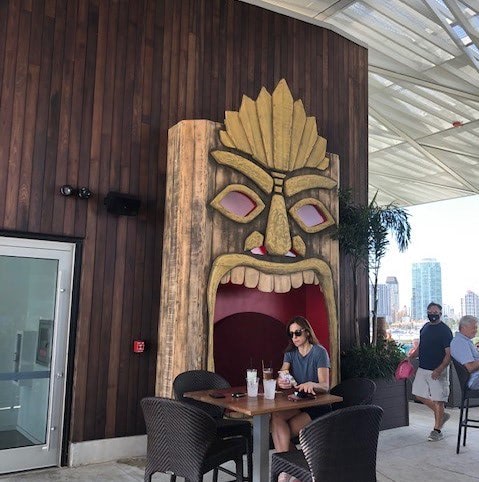 Thermally modified wood rainscreen siding vertical design at St Pete Pier, St Petersburg, Florida
Thermally modified wood rainscreen siding vertical design at St Pete Pier, St Petersburg, Florida
In addition to the natural beauty of the wood, the modification process creates a much more stable wood cladding. Thermal modification helps minimize the natural expansion and contraction of wood as it seasons. And best of all, the thermal process ‘cooks’ the sugars out of the wood, making thermally modified wood siding very resistant to rot, decay, and insects. Thermally modified is tough enough to weather to a silvery tone.
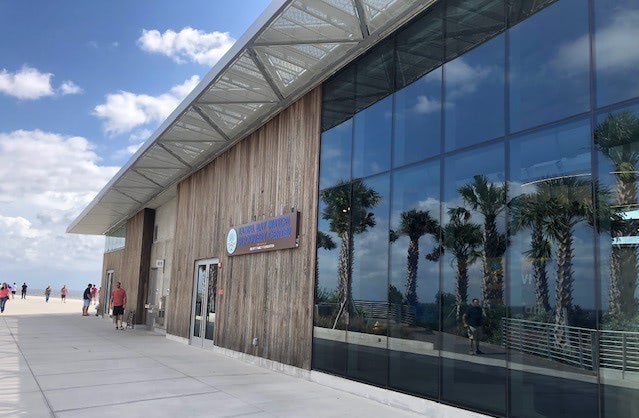
Thermally modified wood rainscreen siding weathering to a silvery gray patina on St Pete Pier
RELATED: Download “How Exterior Woods Weather” eBook today
Looking for more information about wood rainscreen design?
Thermally Modified Wood Siding Project Photo Galleries
Thermally Modified Hemlock wood siding information
Thermally Modified Ash hardwood siding information
REQUEST Rainscreen Siding Samples
DOWNLOAD Wood Rainscreen Siding Commercial Projects Portfolio


